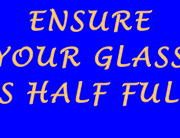CONFLICT RESOLUTION AT THE OFFICE – Does familiarity really breed contempt?
“I do not like that man, I must get to know him better”
Abraham Lincoln (attributed)
Serious disagreement and disaffection between colleagues in the workplace is a huge drain on businesses which can ill afford distractions. Strife and the stress and unhappiness that come with it can affect productivity, cause absenteeism and increase staff turnover – aka damage!
While human behaviour is complex, most particularly when under stress, the same trends and themes are often repeated. An understanding of what is really going on and the dynamics involved is half the battle when seeking to neutralise and resolve conflict. By upping their Emotional Intelligence (EQ) skill set, managers can become more proficient at spotting the early warning signals, and are far better placed to anticipate and then influence what happens next.
THE MOST COMMON CASUES FOR CONFLICT:
IGNORANCE
We often draw conclusions about people within moments of meeting them, or even just seeing them across the office – this is the ‘first impression’ trap. Once in place such preconceptions can condition our views of what others do and say from then on. We should therefore take time to find out more about those around us, or at least be aware of not forming our opinions before we have had the chance to do so in an informed manner.
MISUNDERSTANDINGS
Do we ever get the wrong end of the stick? Of course we do. The best way of avoiding this is, of course, communication – there is no better antidote to adjusting a negative impression of someone than simply taking the trouble to fill in the blanks.
FRUSTRATIONS & IRRITATIONS
Often these are born of ignorance and misunderstanding but also the baggage people take to work can have a huge effect as exterior problems may spill over at the office. This is not excusing ill manners or bad behaviour but if we begin to understand the causes of someone’s behaviour it could at least change our reactions for the better.
FEELING THREATENED
This is about our territory, and our desire to protect what we have or what we should like to have. If we feel threatened we are unlikely to be at our most reasonable or generous, and in such a frame of mind there are short steps between viewing a colleague as a rival, a threat, and even perceived as an enemy. Once this point is reached it is hardly surprising that relations can deteriorate very badly.
DEFENSIVENESS
This is always a good trip wire to tell us we are not confident about a particular issue. Therefore, when we are on our guard we are alerted to anything we interpret as challenging or threatening in nature – and with our shields up we have difficulty telling them apart which can then lead to the next issue.
FROM INTRANSIGENCE TO ENTRENCHMENT
A form of social myopia obscuring a wider picture can develop, as we do not want to be seen to be giving ground. Our opinions become beliefs and therefore part of us so it can be very easy to slip into taking challenges very personally. So often when we ‘believe’ something it becomes regarded by us as the ‘truth’. Our conditioned sense of justice is ingrained in us to defend what we believe to be the truth, to be right. Of course there are very clear-cut instances of right and wrong, truth & falsehood; in human relations, however, things are rarely so straightforward.
Understanding the nature and origins of conflict gets us well on the way to preventing them from escalating or even occurring in the first place. The most important thing, as in the quote attributed to Lincoln, we have to be bothered to look behind the façade in order to drastically improve the chances of conflict resolution.










Leave a Reply
Want to join the discussion?Feel free to contribute!